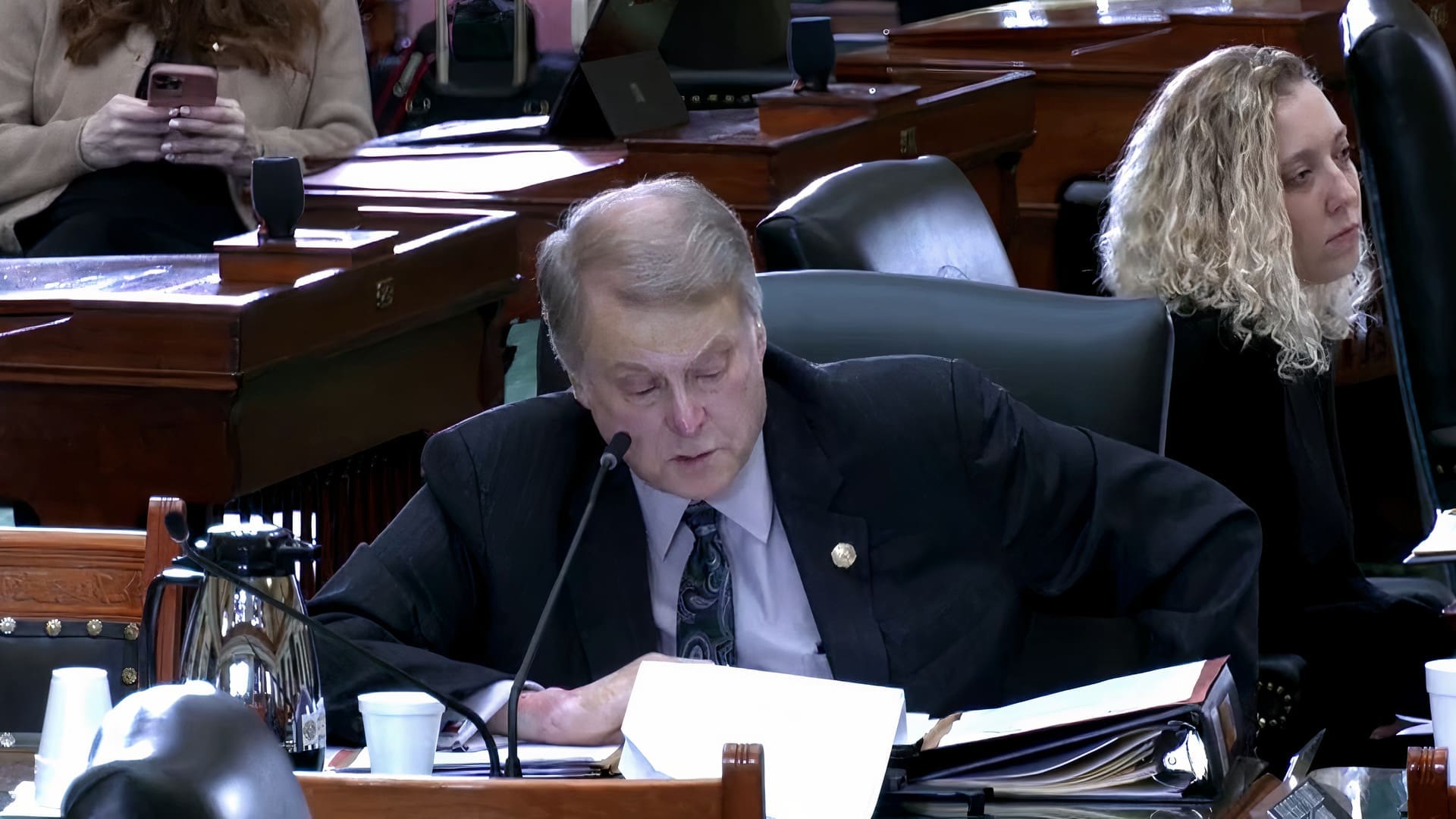Texas senators have taken up two pieces of legislation that would reform the impeachment process for elected officials.
During a Thursday hearing before the Senate Committee on State Affairs, lawmakers considered Senate Joint Resolution 68 and Senate Bill 2051, both of which were filed by State Sen. Brian Birdwell (R-Granbury).
In 2023, Lt. Gov. Dan Patrick named Birdwell as chair of the Senate’s Special Committee to Recommend Rules of Procedure for Court of Impeachment after the House impeached Attorney General Ken Paxton.
During his time as chair of the committee, Birdwell said he noticed serious problems with the current impeachment process in Texas. He specifically noted confusion between impeachment rules found in statutes and those found in the Texas Constitution.
Later, after the Senate acquitted Paxton, problems lingered. Paxton was suspended without pay during his impeachment proceedings, amounting to a loss of around $50,000.
Patrick made note of the situation while taking questions in a press conference reviewing the state of the session thus far on Thursday afternoon. He also acknowledged that Birdwell’s proposals sought to fix the problem.
SJR 68 is a proposed constitutional amendment that would allow impeached officers to receive regular pay as their trials proceed.
The proposal would also permit the Legislature to enact “general laws” to govern impeachment, removing the current legal gray area on how statutes relate to constitutional language.
SJR 68 further stipulates that the governor must appoint a provisional replacement other than himself for an impeached officer. If the governor is removed from office, the lieutenant governor will assume his duties.
“Clarifying and implementing procedures for impeachment will provide future legislators more guidance on the process and align the law with previous impeachment procedures and precedents,” said Birdwell.
SB 2051 would complement Birdwell’s proposed constitutional amendment, providing uniform statutory procedures for how the impeachment process would work in Texas.
“This bill would require that all witnesses’ testimony in an impeachment proceeding be given under oath and in front of members of the Investigative Committee. This provision applies to both House and Senate proceedings,” said Birdwell.
The measure’s committee substitute would also give House members more time to review impeachment materials before deliberation or voting.
It requires that any committee investigating impeachment must provide House members at least 72 hours to review materials and evidence. It also mandates a 72-hour window between the conclusion of floor deliberations and a final vote by the full House.
In addition, SB 2051 prohibits family members “within the third degree by consanguinity or affinity” of an individual on trial from voting on impeachment proceedings.
The provision is particularly relevant to the Paxton case, where lawmakers had to decide whether Angela Paxton, the attorney general’s wife and a Republican state senator, would vote in her husband’s impeachment trial.
It was eventually decided that Angela Paxton would sit as a member of the court of impeachment, but would not vote on any issues before the court.
Birdwell’s measure would also clarify the cost of impeachment proceedings. Each chamber is tasked with reporting the proceedings’ costs to state agencies on the 60th day after their conclusion.
The Texas House only recently turned over the entirety of its spending on Paxton’s impeachment, despite Patrick’s request for an audit immediately after the trial concluded.
State Sen. Bob Hall (R-Edgewood) applauded Birdwell and his team’s work constructing the proposed constitutional amendment and the accompanying measure, but had questions on whether it applied to divorced spouses.
Birdwell said he would work together with Hall to try to find an answer.
Public witness George Saldana said he supported SB 2051 because “the judicial branch in Texas had faced considerable challenges adhering to the law.”
“Currently, there’s a lack of oversight through the State Commission on Judicial Conduct, which has proven ineffective in holding judges accountable. … It’s imperative that we strive to impeach district court judges who fail to uphold the laws enacted by the Texas Legislature,” said Saldana.
Both items were left pending in committee.





